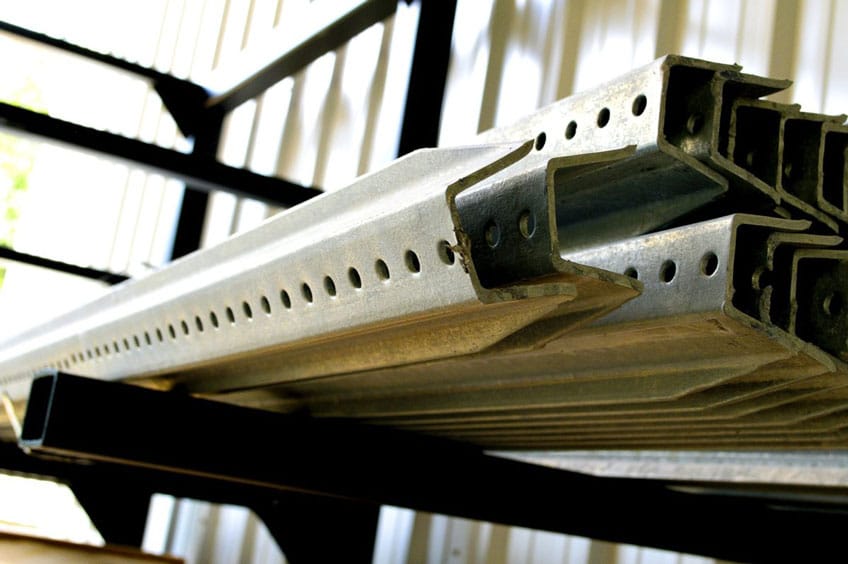Want an interesting fact for the day? Here’s one of our favorites: steel is the most recycled material on the planet. It makes sense, because steel is found in such a wide range of products that we use in our homes, the cars we drive, job equipment and more. Steel takes relatively little energy to produce, and it has a high recyclability profile. In fact, nearly 40 percent of worldwide steel production uses recycled steel.
According to the World Steel Association, there are more than 3,500 different grades of steel. Some are used much more frequently than others, but each type has its own strength and is used for different applications. Here are the four most common types of steel, and a little background about each.
Carbon Steel
This alloy makes up 90 percent of overall steel production. Due to its varying carbon range (varying between 0.04 and 1.5 percent) there are three types of carbon steel: low, medium and high carbon.
Lower carbon steel is the most common, typically containing less than .30 percent of carbon. It’s more pliable and easy to shape. Medium carbon steel comprises up to .60 percent of carbon and, therefore, is much stronger than low carbon steel but can still be used to weld or form. High carbon steel contains up to 1.5 percent carbon steel and is the strongest of the categories and can be difficult to work with. However, high carbon steel is a great metal for tools. Overall, carbon steel can be used for a wide range of applications, from auto parts to structural beams to flat sheets and other construction-related products. Carbon steel is valued at 0.37 cents per pound.
Alloy Steel
Alloy steels comprise several different elements, including carbon, iron, nickel and copper. Steels in this category contain alloying elements (manganese, chromium, molybdenum, silicon and nickel) that give them distinct properties such as strength, hardenability and corrosion resistance. Alloy steel is most often used in mechanical work or for pipelines, auto parts, power generators and transformers. Depending on their strength and composition, some alloy steels can even be used in production of airplanes and spacecraft.
Stainless Steel
Just like the stainless steel appliances we use in our kitchens, stainless steels are reflective, resistant to corrosion and able to withstand high temperatures—which is why we use them so much in messy areas in the home. Stainless steel has a low carbon makeup but contains at least 10.5 percent chromium, which helps prevent corrosion, as well as nickel or molybdenum.
There are more than 100 grades of stainless steel, which makes it an extremely versatile and customizable material. It is strong, resistant to corrosion and 100 percent recyclable, which makes it ideal for use in a wide range of applications. Most commonly, it’s used as a material for medical equipment and transportation of chemicals and food products. It’s also frequently used in the energy industry for the construction of storage tanks, valves and pipes. Stainless steel is valued at 0.27 cents per pound.
Tool Steel
This unique class of steels is made up of tungsten, molybdenum, chromium and vanadium, which makes it an ideal alloy for crafting tools. Tool steels contain a unique strength, hardness and resistance to abrasion and deformation.They’re also known for being able to hold a sharp edge even in extreme temperatures. This makes them an ideal material for cutting, extruding and molding other metals. Of course, this has earned them the name “tool steel” since they’re so often used in the construction of tools used for stamping, cutting and mold-making. They’re also a common steel used to make hammers.
No more Google searches for “metal recycling near me”—if you’re a business or a construction professional who needs to get rid of your scrap steel, you’ve come to the right place. Gardner Metals is a family owned and operated Austin recycling center that has been recycling metals for the Austin community for fifty years. We’ll give you the best scrap steel prices on the market and pay you on the spot for the scrap metal we take from you. Not sure what you can bring to us? Contact us here and we’ll be happy to help you out.

